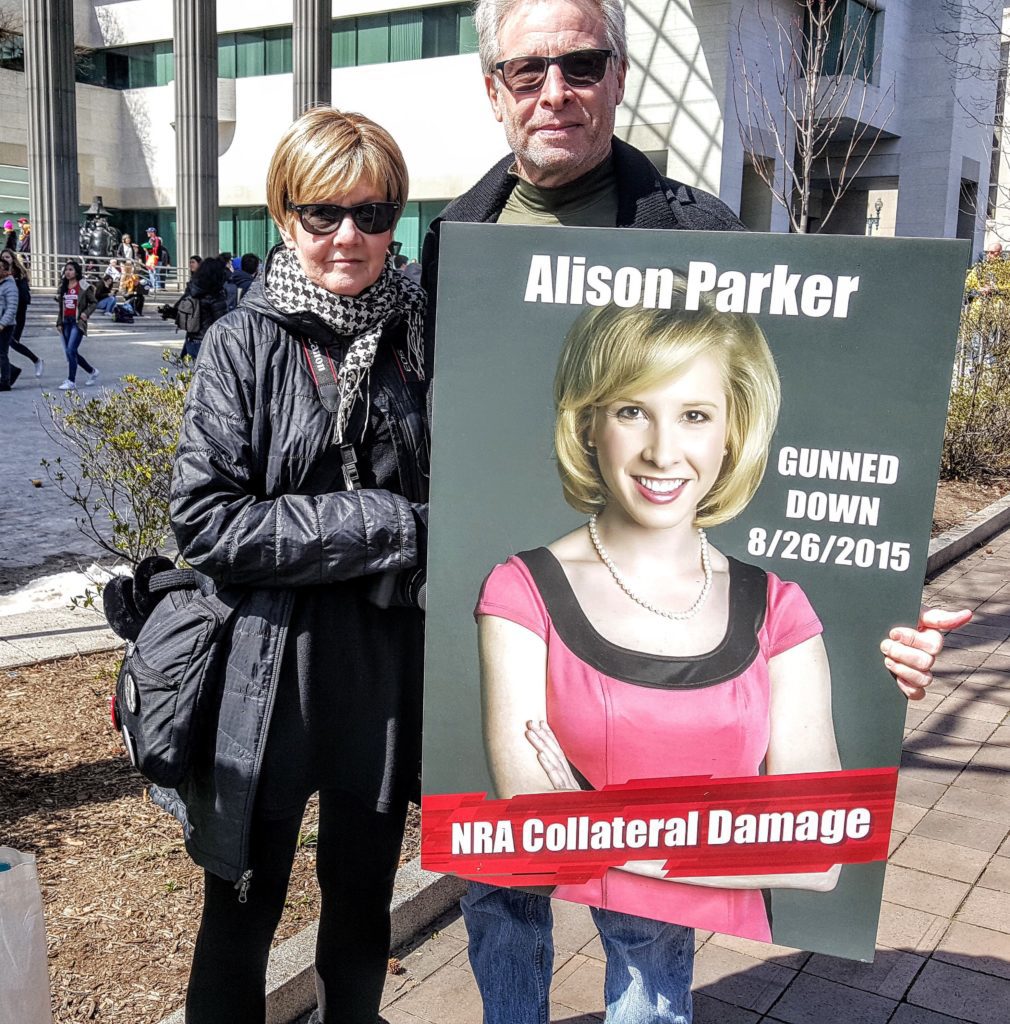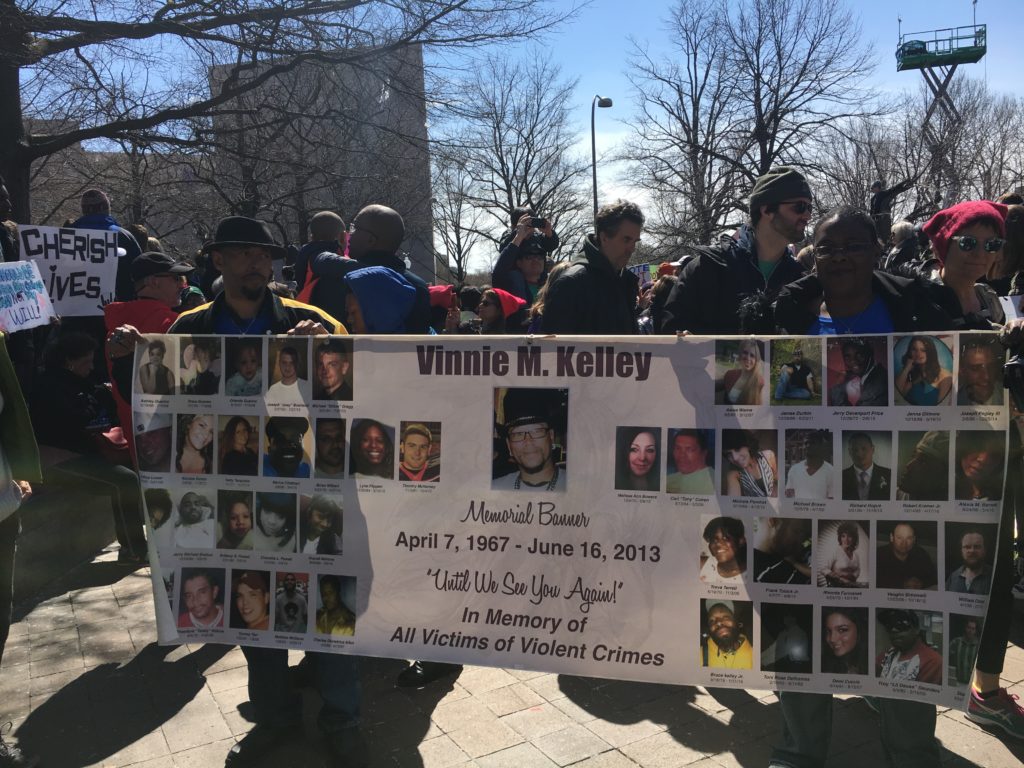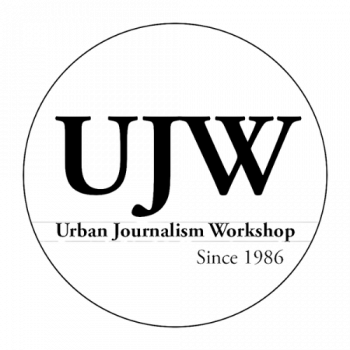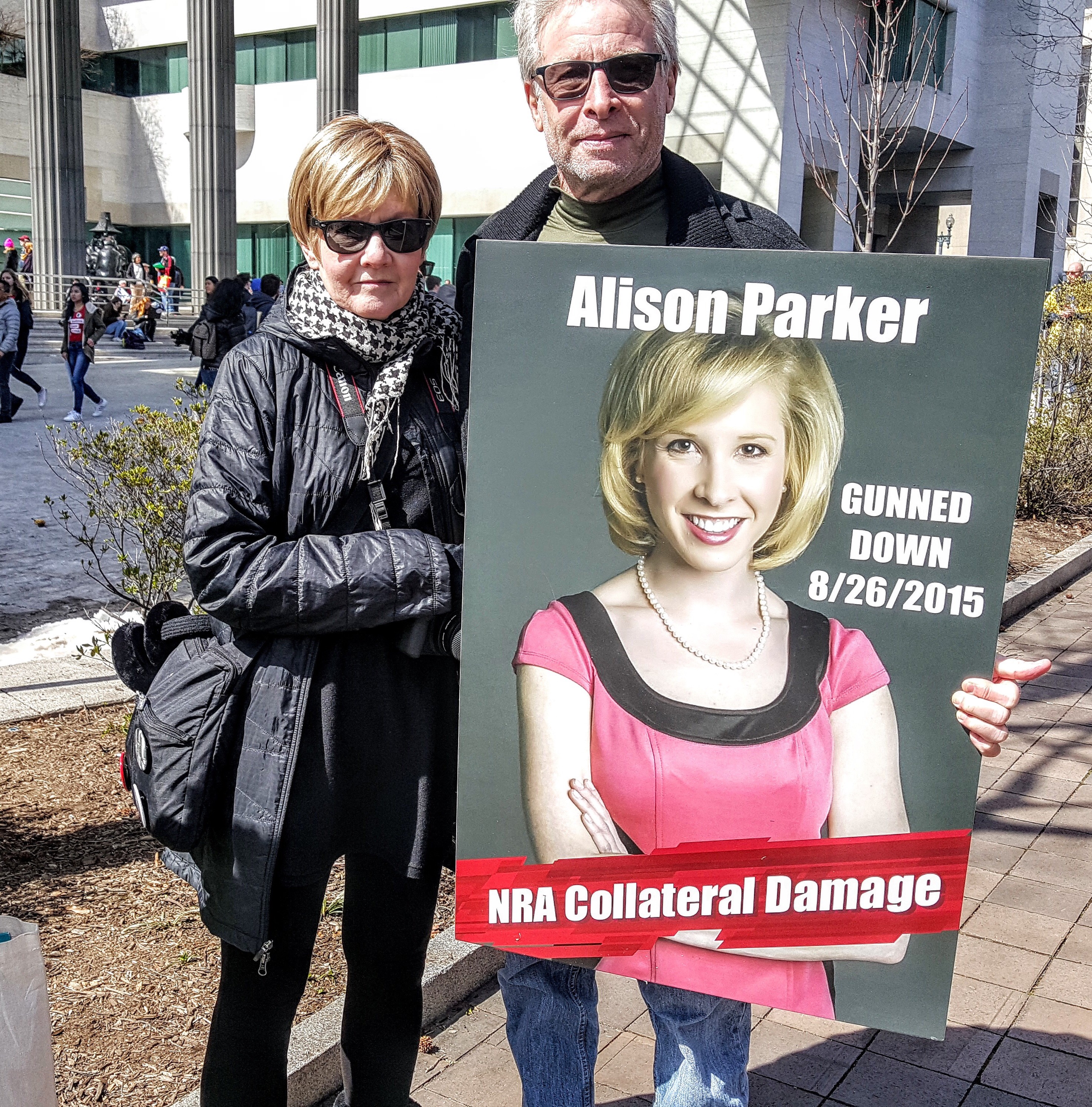By Mary-Kate Wilson
Barbara and Andy Parker came to the March For Our Lives with a poster showing the face of their 24-year-old daughter, Alison. Alison, who was a local journalist in Roanoke, Virginia, was murdered on live television in August 2015, along with her colleague Adam Ward.
Alison’s story shocked viewers and brought attention to gun violence across America, but her death did not change laws in her local town of Martinsville, Virginia, nor in the country as a whole, her mother said.
“We’ve been fighting this fight for two and a half years,” Barbara Parker said. “If you’re a sensible gun owner, you understand there needs to be some things done to protect people, and if you think that nothing should be done, then you are a big part of the problem.”

The Parkers were far from the only attendees out of the hundreds of thousands of demonstrators at the Washington rally remembering a loss of loved ones to gun violence.
Speaker after speaker shared harrowing stories about the impact of gun violence in their lives, advocating for a future without shootings in schools and other aspects of everyday life. A common theme ran among all of those sharing their stories of just how close to home gun violence could hit — no matter who you are, or what life you lead.
“I’ve been affected by the lack of gun control. My father was killed by guns,” said William Patterson, a fourteen-year-old who lives in Aurora, Colorado. In addition to experiencing the loss of his father, Patterson’s hometown was the site of a tragic shooting at a local movie theater in 2012. “I wish people would know that it’s not something that’s far out there that you won’t experience. Everyone will experience it.”
Many who attended the march carried signs with slogans and photos, some with broad, universal statements for a call to action, but others with devastating stories and personal accounts of gun violence.
A large memorial banner was one such poster; it was lined with 55 photos, and it took two people to hold it horizontally. Suzanne Kelley, of Washington, Pennsylvania, carried the sign, depicting all of the friends and family members she had lost in shootings and cases of domestic violence. Many passersby were shocked by the large number of people that Kelley had known and lost, and Kelley’s message was clear.
“We’re tired of this,” she said, “It’s time for change.”
The march was not only an event for mourning. According to Dr. Adele D’Ari, a Washington psychiatrist who did not attend the March For Our Lives, the rally gave demonstrators an opportunity to heal.
“One of the ways that you recover is to become an advocate,” she explained. “If you get a handle on [trauma] emotionally, you’re not controlled by it, and you feel better because you’re helping. The way people heal is to confront the trauma, the upset, the horror.”
Even years after a traumatic event, speaking out is therapeutic to those who are suffering.
“You don’t ever forget trauma, you just master it,” D’Ari said. “Either you do something, or you feel helpless.”
Even if demonstrators did not personally know anyone who had been killed by guns, many said they witnessed the effect of gun violence in their daily lives, and expressed fear about how a shooting could hurt them, their families, or their friends.
Dan McNeil, a father of two who works for the American Federation of Teachers, came to the march to support gun safety for students across the country.
“Our schools should be a place that’s safe. It should not be a place where anyone has fear that there’s going to be a shooting,” he explained. “Our teachers were in the schools in Newtown, Connecticut. Our teachers were in the school in Broward, where Marjory Stoneman Douglas School is located. It affects everyone in our community in one way or another.”
Remembering her daughter, Barbara Parker reflected on how sudden and unexpected Alison’s death was, and how tragically familiar her situation is becoming to many Americans.
“We lived in this small town in southern Virginia and thought ‘we’re safe, our kids are safe, it’s not gonna happen to us’. And we are proof that it can happen to anybody,” she said, looking to her husband, Andy.
When Alison Parker was fatally shot, she was conducting a live television interview for the local CBS affiliate where she worked, WDBJ. Alison died on the scene.
“You could be at a grocery store, you could be at a movie, and you could be killed,” Barbara Parker said. “And that is absolutely unacceptable. That is not what life, liberty, and the pursuit of happiness is.”



